The market for in-vitro diagnostics (IVD) is important for modern healthcare because it enables doctors to use diagnostic tests on samples such as blood, urine, and tissues to identify and track illnesses. The increasing prevalence of chronic diseases, the growing need for quick diagnoses, and technological developments are all contributing to this field's rapid expansion. It is projected that the IVD market will increase from USD 125.45 billion in 2025 to USD 202.91 billion in 2033. North America leads the market due to its advanced healthcare infrastructure, with Asia-Pacific countries like China and Japan emerging as significant players, driven by the ageing population and increasing chronic disease prevalence.
The top players influencing the IVD sector and driving advancements in medical diagnostics are as follows -
Roche Diagnostics
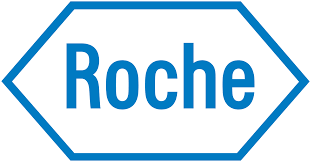
Roche Diagnostics, the global leader in in-vitro diagnostics, holds a significant market share in IVD. With over USD 16.8 billion in 2023, Roche had the biggest diagnostic revenue in the world. As a result of the company's continuous investments in developing diagnostic solutions, Q1 revenues increased from USD 3.3 billion in 2019 to USD 6.03 billion in 2022. Roche's innovative diagnostic technologies aid in the detection of a number of illnesses, such as autoimmune and infectious diseases. Roche, which is well-known for its high-quality products and R&D expenditures, keeps pushing IVD developments, especially in molecular diagnostics and immunoassays, to maintain its position at the forefront of healthcare diagnostics.
Abbott Laboratories

Abbott Laboratories, which now has the second-largest market share in the IVD segment, is a leader in rapid diagnostics. In 2023, Abbott's rapid diagnostics category generated USD 3.7 billion. Despite this minor decline from prior years, Abbott is still strong, as seen by its consistent increase in Q1 revenues from USD 1.05 billion in 2019 to USD 1.57 billion in 2022. In fields like point-of-care (POC) testing, Abbott has made notable advancements, especially in the diagnosis of infectious diseases and glucose monitoring. Abbott's strong R&D capabilities allow them to keep coming up with new ideas that improve diagnostic test accessibility and speed around the world.
Siemens Healthineers
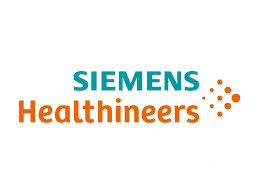
With its computed tomography (CT), magnetic resonance imaging (MRI), and ultrasound equipment, Siemens Healthineers is an established name in diagnostic imaging. With an astounding 37% market share, Siemens is a significant player in the IVD industry, particularly in imaging diagnostics. From USD 0.57 billion in 2019 to USD 0.89 billion in 2024, Siemens' revenue increased steadily. Siemens' comprehensive strategy contributes to precise and effective illness diagnosis by combining cutting-edge diagnostic tools with traditional imaging solutions.
Danaher Corporation
Danaher Corporation, which holds 13% of the U.S. market share in 2022, is well-known for its extensive influence in the biotechnology, life sciences, and diagnostics sectors. With over 100 markets globally, Danaher's IVD products are widely used. With a wide range of products that includes clinical equipment, reagents, software, and consumables, the company focuses on facilitating greater accessibility to diagnostic tools. Danaher has been able to provide dependable, high-quality diagnostic solutions by prioritizing customer-driven innovation.
bioMerieux
BioMerieux, a leader in infectious illness diagnostics, is renowned for its innovative diagnostic products that improve early detection of diseases. During 2021-2022, bioMerieux saw a sharp increase in income, rising from USD 1.83 billion to USD 5.29 billion. Despite a drop in sales to USD 2.21 billion by 2024, bioMerieux continues to be a major participant in the IVD industry by consistently enhancing diagnostic tools for hepatitis, HIV, and tuberculosis. Its state-of-the-art technology strengthens bioMerieux's position in the diagnostics industry by enabling prompt detection and treatment.
Bio-Rad Laboratories
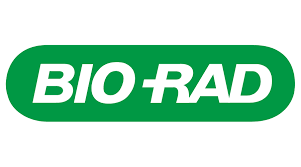
Bio-Rad Laboratories is well-established in the IVD industry's clinical quality control, offering instruments that guarantee the precision and dependability of diagnostics. Bio-Rad's Clinical Diagnostics division had $1.49 billion in net sales in 2023. Bio-Rad is well-known for its quality control products and is essential in areas such as infectious illness detection, diabetes monitoring, and autoimmune therapy. Its dedication to raising diagnostic standards supports the provision of precise, efficient patient care by healthcare facilities around the globe.
Qiagen
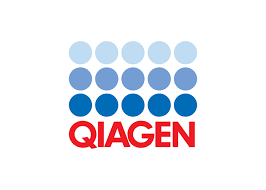
With a focus on pathogen and genetic material detection, Qiagen has made a name for itself as a pioneer in molecular diagnostics and sample preparation technology. Advanced test systems from Qiagen are available for detecting hepatitis and HIV, among other infectious disorders. Qiagen enhances laboratory operations by incorporating automated technologies that optimize lab procedures, assisting medical professionals in providing quicker and more precise diagnosis.
Thermo Fisher Scientific
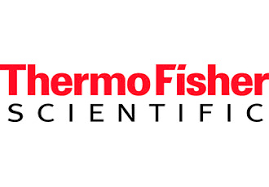
Ranked second globally for IVD quality control, Thermo Fisher Scientific is known for its molecular diagnostics, clinical lab automation, and high-throughput testing solutions. The company maintains its position as a significant player in the IVD market by innovating to meet the increasing need for accurate, fast testing. Tools and products from Thermo Fisher are now essential in labs all around the world, especially in molecular diagnostics and genetic testing.
Sysmex Corporation
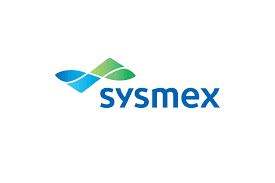
With more than 50% of the haematology diagnostics industry, Sysmex, a Japanese business, is a significant player in the IVD haematology area. Sysmex's haematology division, which specializes in blood cell analysis, accounted for almost 59% of its revenue in 2022. Sysmex's modern technology is essential for accurate diagnostic testing since it offers crucial insights into blood-related health conditions.
Becton, Dickinson and Company (BD)
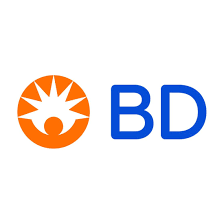
BD, which generated USD 19.37 billion in 2023, is renowned for its modern diagnostic products and gadgets. BD is well-known for improving clinical procedures and providing cutting-edge IVD solutions that raise patient standards. From glucose monitoring to the detection of infectious diseases, BD's extensive portfolio supports a broad range of diagnostic applications, guaranteeing high-quality and easily accessible diagnostics.
The market for IVDs has a promising future due to innovation and the rising need for easily accessible, precise diagnostic instruments. These key players have a major influence on healthcare diagnostics, offer life-saving treatments, and raise the standard of care everywhere.






